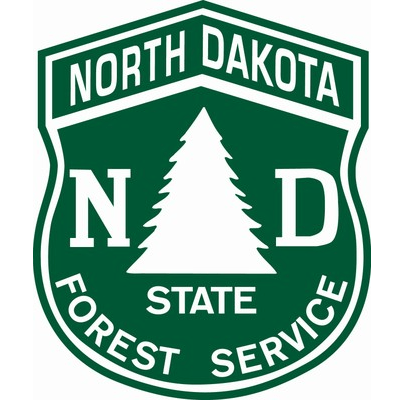
By Beth Hill, ND Forest Service
BISMARCK, N.D. (ND Forest Service) – As families prepare to enjoy North Dakota’s outdoor destinations over Memorial Day weekend, residents and visitors are encouraged to recreate responsibly by practicing fire safety.
While recent moisture has provided some relief from fire starts over the past few weeks, dry conditions still persist in many areas of the state with 98 percent of North Dakota experiencing some level of drought.
To view current fire restrictions by county, travelers can visit ndresponse.gov or contact their local emergency management office. Burn ban restrictions for state parks are derived from the county in which the park is located. Some burn bans also are determined by the fire danger rating and/or red flag warnings for a particular area. The fire danger rating is issued daily and also can be found at ndresponse.gov.
Campers should always “know before you go,” and are encouraged to verify if campfires are permitted at the destination they are visiting. The North Dakota Parks and Recreation Department has increased communication to visitors in weekly emails outlining current fire restrictions. Those with state park camping reservations are encouraged to watch their inbox prior to their visit. In all North Dakota state parks, fires must be contained in designated fire rings.
Remember to practice these safety tips:
-Keep your fire small, and never leave a campfire unattended.
-Be sure that pets and children are supervised near any campfire.
-It is important to keep a shovel and bucket of water nearby to properly extinguish the fire.
-If possible, allow the wood to burn completely to ash when you are finished enjoying your fire.
-Pour water over all embers—not just the red ones—until the hissing sound stops.
-Then, stir with a shovel. Continue pouring water and stirring with a shovel until the fire is completely extinguished.
-Use the back of your hand to feel the heat of the fire embers.
Remember, if it’s too hot to touch, it’s too hot to leave.
“Everyone has a responsibility when it comes to campfire safety. As we welcome an increased amount of visitors back to North Dakota’s state parks this summer, it’s important to keep these tips in mind to ensure an enjoyable experience,” stated North Dakota Parks and Recreation Department Director Andrea Travnicek, Ph.D. “The safety of the public and protection of the land, resources, and facilities remain a top priority for our agency.”
To learn more about recreating responsibly and to help prevent wildfire in the state, North Dakotans can visit SmokeyBear.com and read through the Campfire Safety Guide. Remember, only YOU can prevent wildfires!
The State Water Commission (SWC) and Office of the State Engineer (OSE) also would like to remind citizens to please “Keep Your Beaches Clean.” These efforts are meant to help reduce littering and glass container violations on sovereign lands throughout the state, particularly along the Missouri River.
“Keep Your Beaches Clean” is an on-going public awareness campaign that was first introduced by the OSE in 2013 and aims to educate recreational users regarding the rules and regulations on sovereign lands. Sovereign lands are publicly owned lands that are managed for the benefit of the citizens of the state. The OSE helps to ensure public safety on North Dakota’s sovereign lands — including the beds and islands, lying within the ordinary high watermarks of navigable lakes and streams — by alleviating harmful littering and the illegal use of glass bottles on the state’s public beach areas and sandbars. Signs are posted at numerous access points along the Missouri River, making the public aware of possible consequences for these violations, including a $100 fine for glass containers and a $250 fine for littering.
Illegal motorized vehicle use on sovereign lands is also prohibited with a potential fine of $100.
“North Dakota has an abundance of scenic locations and recreational opportunities for residents and tourists. Many of these activities take place on sovereign lands and it is extremely important to keep these cherished destinations clean and safe,” noted John Paczkowski, Interim State Engineer. “Broken glass creates a potentially dangerous and serious health hazard, which is why glass containers are prohibited on sovereign land throughout the state.”
